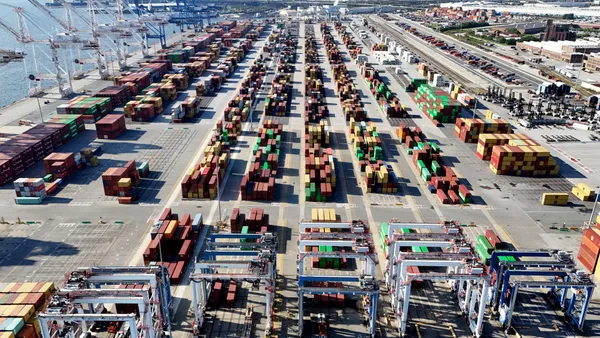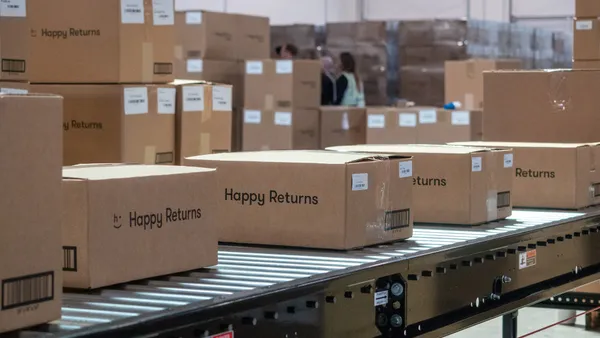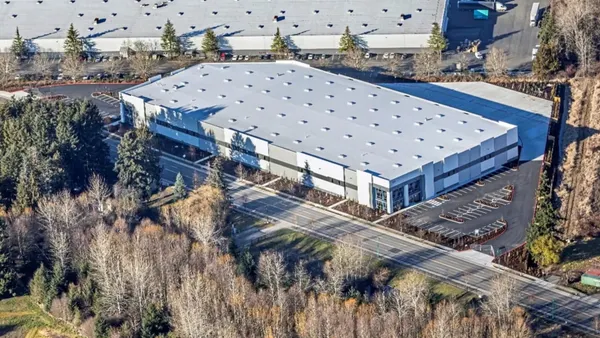Dive Brief:
- Seattle’s container Terminal 18 is grappling with crowded truck turn times lasting from one hour to one day as the port absorbs more calls thanks to the new shipping alliances, JOC.com reported from exclusive information Wednesday.
- The delay in new-alliance side effects is due to the length of time it took for new rotations to hit the West Coast, or about a month, according to the website.
- However, effects have been uneven throughout the coast as Oakland reportedly did not exprience congestion, while the Ports of Los Angeles and Long Beach struggled with rail timing at dockyards after increased calls from the 2M alliance.
Dive Insight:
Neither the U.S. nor Asia are alone in suffering various alliance-related port congestion. In Rotterdam, barges remain delayed nearly two weeks after the congestion started, The Loadstar reports.
Believed to be a result of the change in alliances, timetables have been disrupted and extra charges for container delivery are under consideration. Deep sea calls have increased, creating more volume, though there is hope that normal service will resume soon.
Though much has been made of those ports which deepened their harbors in anticipation of post-panamax ship sizes, many are still struggling to manage the increased volume from higher TEUs. This is believed to have been the major cause of delays at Yangshan port near Shanghai, which suffered a 40% slower turnaround time thanks to extended unloading periods.
A further contributor to delays was a shortage of containers. A planned rise in rates caused a groundswell of shipping activity, leaving available containers in short supply. As shippers desperately sought empty containers, vessels languished in port.
The effects in Seattle are clearly just the latest in a string of repercussions from the deployment of new shipping alliances, largely due to surprising side effects. It's unclear when such effects will settle down, and may depend on each port or terminal independently, but in the meantime additional delays should be expected on sea imports.












